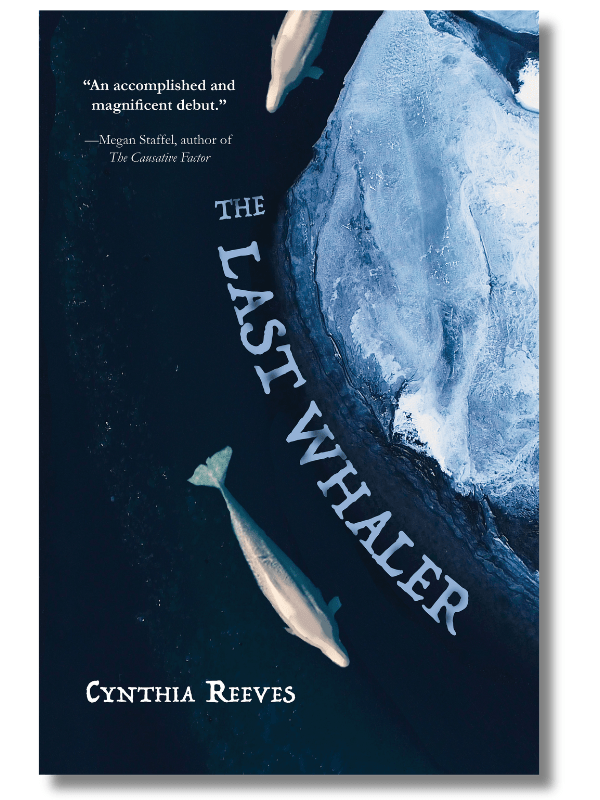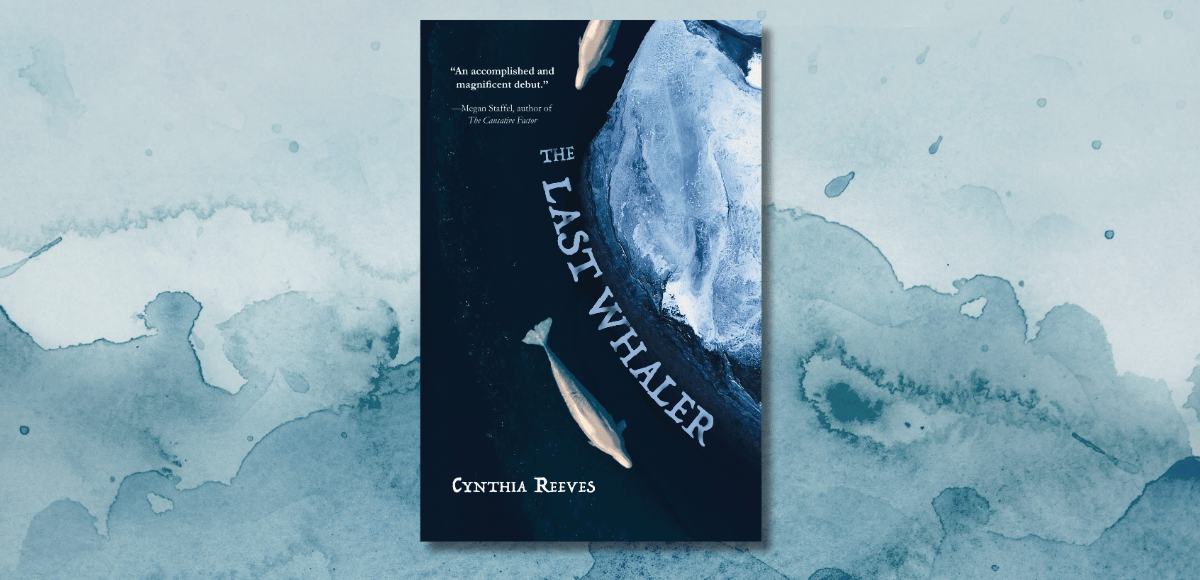
The Last Whaler
by Cynthia Reeves
Genre: Historical Fiction / Literary
ISBN: 9781646035083
Print Length: 326 pages
Publisher: Regal House Publishing
Reviewed by Erica Ball
A dark, emotional tale about facing the harshness of grief while living through a brutal, sunless Arctic winter
Astrid thought she could do it. She thought she could accompany her husband, Tor, to his beluga whaling station for the hunting season. In some ways, she was right. In others, not quite.
Just as they think their trials in the harsh north are over, one miscalculation leaves them stranded, facing the long cold period of 24-hour darkness, when the sun doesn’t rise for months. With blizzards, extreme cold, predatory polar bears, and an unexpected pregnancy to boot, tragic consequences turn inevitable.
The reader learns all this early on in The Last Whaler by Cynthia Reeves. What we don’t learn are the details: why Astrid, a botanist, decided to accompany Tor that summer after years of staying home to maintain their farm in southern Norway; how they got stranded when Tor is so experienced at this trip; and what exactly happened to her at the end of this adventure.
The story is told through letters Astrid writes during the time of these events, set in 1937-38, as well as Tor’s remembrances as he retraces their steps ten years later. This dual point-of-view means we see slightly different takes on the same incidents, often to humorous effect. After all, two people will experience the same thing in their own ways. And this is definitely the case for a husband and wife who are keeping secrets from one another.
The story is bleak in tone, but it comes with surprising moments of levity, such as those caused by Astrid and Tor’s differing perspectives. Other bright spots often center around Astrid’s delight as a botanist with a passion for Arctic flora as she investigates the ways in which plant life somehow perseveres in such a difficult ecosystem.
That fact that we know it ends tragically for her but don’t know exactly how adds a great deal of anticipation and suspense, as any scene could be the moment it happens. In this way, the author deftly builds the tension in a gradual manner, until the moment finally arrives.
The plot is largely character driven, as much of it is the direct result of the decisions Astrid and Tor make. Though some events are out of their control, in many ways the outcomes are predictable to the reader and a testament to their very realistic, but frustratingly flawed characters. Because they both try so hard to be good people and good spouses, to live good lives, and to handle the hardships thrown their way, they are sympathetic as well. Their avoidable mistakes come across as very, very human.
Due to its setting, the book provides an interesting depiction of the progressive and equality-driven nature of Norway in the 1930s. It is easy to forget that the conservatism prominent in the West in the 1950s was actually a reaction to these movements decades before.
It is also a window to a different perspective of the time approaching what was to become World War II than is common in literature centered around Western Europe, Britain, and North America.
Because of this, The Last Whaler is highly recommended for readers interested in the history of this place and time, especially in terms of speculating what people at the time made of the social conditions and the looming threat of another great war.
At the same time, due to the detailed descriptions of the area’s geography and plant and animal life, it would be of special interest to those interested in these extreme environments. It will appeal to those drawn to survival stories, especially in inhospitable conditions.
In addition to all of this, The Last Whaler touches on themes of isolation, faith, and storytelling to process life’s darker moments. It meditates on the effect humans have when engaged in large scale hunting in delicate ecosystems. It’s about these big themes, but it’s also about the struggle of a single person to stay alive despite overwhelming grief. Then to stay alive despite overwhelming odds. It’s about how the dangers that lurk within us are as terrifying as those to be found without. And the dogged impulse of the living to keep on living.
Thank you for reading Erica Ball’s book review of The Last Whaler by Cynthia Reeves! If you liked what you read, please spend some more time with us at the links below.


0 comments on “Book Review: The Last Whaler”